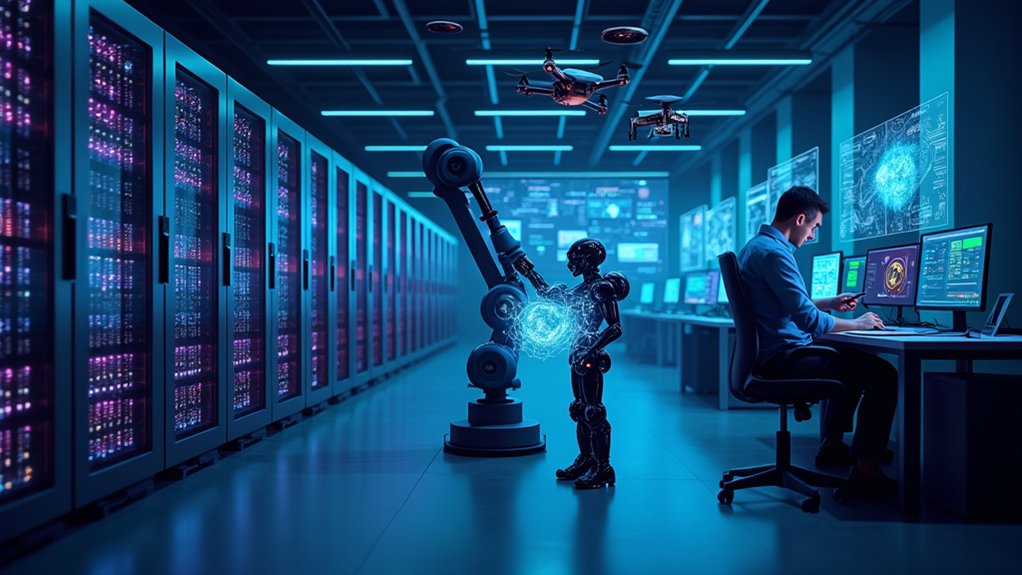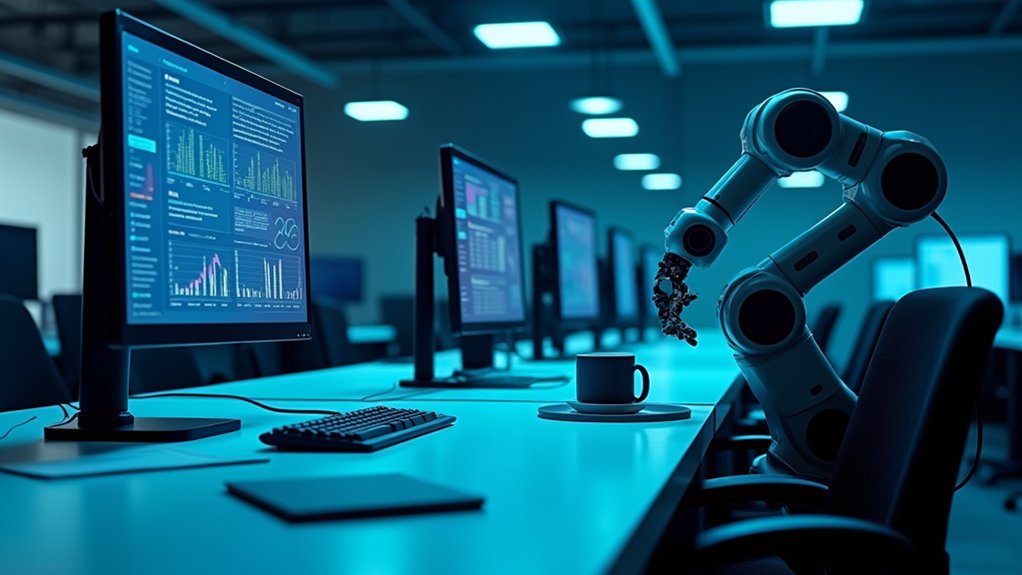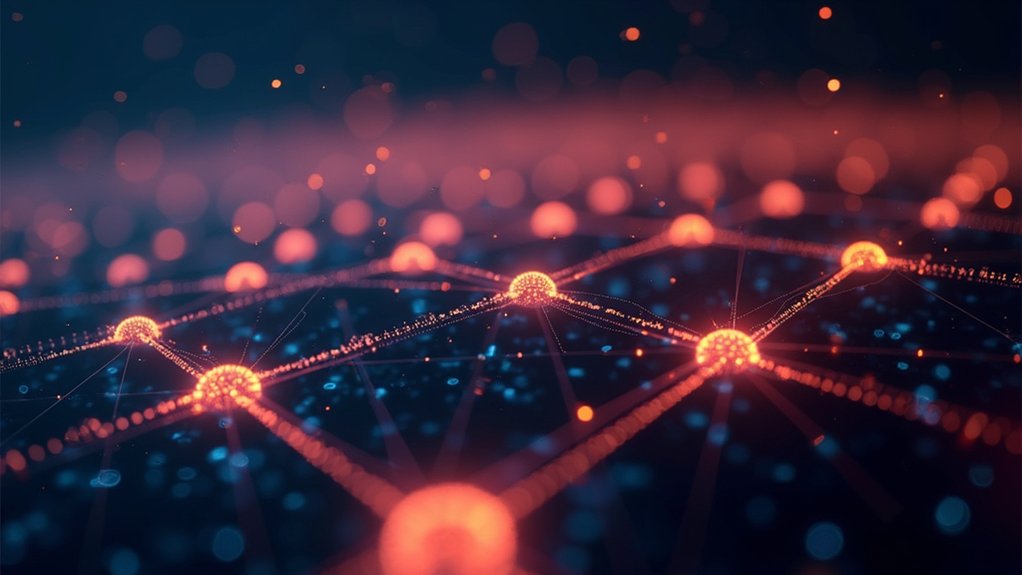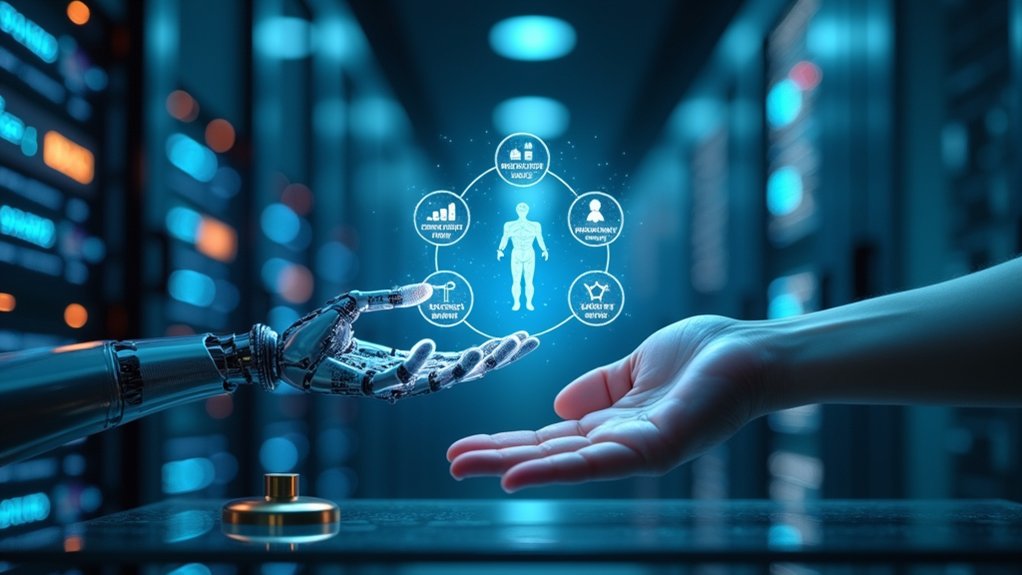AI is remarkably advanced today, excelling in language understanding, image recognition, and predictive analytics. It outperforms humans in complex games and operates invisibly in many daily applications. Nearly 80% of companies use AI, with the market expected to reach $407 billion by 2027. While AI transforms healthcare, finance, and other industries, it still lacks common sense reasoning and faces challenges with bias. The technology's evolution continues to accelerate at an unprecedented pace.

Where exactly does artificial intelligence stand today, and how far has it truly come? AI has become a major part of our daily lives, even if we don't always notice it. Current AI systems excel at tasks like understanding human language, recognizing images and speech, driving vehicles, and making predictions based on data. Some AI can even beat the world's best human players in complex games.
Businesses around the world are rapidly adopting AI technology. Nearly 8 out of 10 companies now use AI in at least one area of their operations. Experts predict the AI market will grow to $407 billion by 2027, with 63% of organizations planning to start using AI within three years. This technology could add $15.7 trillion to the global economy by 2030.
AI adoption is skyrocketing, with predictions of a $15.7 trillion economic boost by 2030.
In healthcare, AI helps doctors spot diseases in medical images, assists surgeons during operations, predicts patient outcomes, and speeds up the discovery of new drugs. Virtual nursing assistants can now support patients around the clock.
The financial world has also embraced AI. Computer algorithms trade stocks at lightning speed, detect fraud in real-time, and manage investment portfolios automatically. AI chatbots handle customer questions, while loan applications can be assessed instantly. The rise of multimodal AI is enabling more intuitive interactions across text, images, audio, and video, transforming how financial institutions communicate with customers.
Despite these impressive abilities, today's AI has clear limitations. It lacks common sense reasoning and struggles to apply knowledge from one task to another. Many AI systems also face criticism for bias in their decisions, use too much energy, and need massive amounts of data to function properly. The industry is now facing a potential energy crisis as power demands from AI applications and datacenters continue to surge beyond available supply.
Looking ahead, researchers are developing larger language models, systems that combine text with images and sound, quantum-based AI algorithms, and computing that mimics the human brain. While artificial general intelligence remains a distant goal, we can expect more explainable AI systems, better human-AI teamwork, and stronger ethical frameworks for AI development. The majority of consumers support increased regulation, with 85% of individuals favoring national efforts to ensure AI safety and security.
As powerful as today's AI is, it still has a long way to go.
Frequently Asked Questions
Can AI Develop Consciousness or Self-Awareness?
Current AI systems can't develop true consciousness or self-awareness. Experts remain divided on whether machines will ever achieve these qualities.
While AI can simulate human-like responses, it doesn't have subjective experiences or genuine understanding. Scientists face major challenges, including defining consciousness scientifically and replicating neural networks.
Some researchers predict conscious AI within decades, while others believe it's impossible for machines.
What Jobs Are Most Vulnerable to AI Replacement?
Jobs at highest risk for AI replacement include data entry clerks with 95% risk, telemarketers at 94%, and manufacturing workers at 88%.
Customer service roles face major disruption, with 95% of interactions expected to be AI-powered by 2025.
Transportation jobs are threatened by self-driving technology, with 294,000 truck driving positions at risk.
AI excels at tasks involving repetition, data processing, and routine interactions.
How Is AI Regulated Globally?
AI regulation varies globally with different approaches.
The EU leads with its extensive AI Act, while the US relies on existing laws.
China maintains strict oversight, and the UK focuses on innovation with targeted rules.
Many countries follow OECD guidelines.
Regulators are adopting risk-based frameworks that balance innovation with safety.
International cooperation is growing, but challenges remain as AI develops faster than regulations can adapt.
Will Quantum Computing Dramatically Accelerate AI Capabilities?
Quantum computing could eventually boost AI capabilities, but it's not happening soon.
Today's quantum computers remain too unstable and error-prone for practical AI applications. Researchers believe quantum systems might someday process massive datasets faster than classical computers.
Many technical hurdles remain, including developing error correction and quantum memory systems. For now, scientists are exploring hybrid approaches that combine quantum and traditional computing methods.
What Ethical Frameworks Guide AI Development?
Several ethical frameworks guide AI development today. These include the IEEE Ethically Aligned Design, EU Guidelines for Trustworthy AI, OECD AI Principles, UNESCO Recommendation on AI Ethics, and Google AI Principles.
These frameworks focus on fairness, transparency, privacy protection, accountability, and ensuring AI benefits humanity.
Implementation typically involves ethical review boards, algorithmic impact assessments, diverse development teams, and ongoing system monitoring.
Global consensus remains challenging due to different cultural values.









